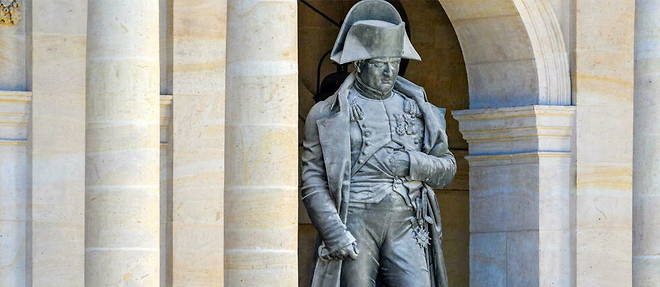As a young officer, Bonaparte had witnessed the vertiginous fall of the Bourbons, swept away by the Revolution. Once in power, there was no question for him of letting himself be overwhelmed by internal opposition, even less by public opinion, especially since he spent a large part of his time on the battlefields, fighting against the major European powers. He then aims to create a vast intelligence network at his command, as shown by the historian Gérald Arboit in a vast study published by Editions Perrin, Napoléon et le Renseignement, which dissects with precision the strategy put in place to lock down the Empire. , methods that also take over those from the Old Regime.
At the head of the police, the indispensable Fouché, who monitors the capital, pulls the strings and maintains his networks, in particular with his damned soul, Pierre-Marie Desmarest, in charge of the high police, the equivalent of our general intelligence – external surveillance being the responsibility of Talleyrand, the regime’s other strongman. Reports, general police bulletins, intercepted letters, rumors and denunciations, so much confidential information which is methodically sorted and goes back, for the most important of them, to the famous cabinet of the Emperor, the holy of holies. There is also the famous “black cabinet”, solely dedicated to diplomatic intelligence, with hand-picked postal employees speaking several languages, who follow one another from father to son.
On the ground, a vast security organization is at work. It relies above all on the prefects, these kinds of mini-governors inspired by the Old Regime that Napoleon established in all the departments. They have control over the police – via the mayors of the cities who are appointed – and also command the gendarmerie brigades which mesh the rural territories and collect a lot of information. For Napoleon, who had enemies at the same time among the royalists, the soldiers and the Jacobins – he was the object of about twenty attacks -, this surveillance overlapped by different bodies is “the most effective way of maintaining the tranquility of a country”. And to add: “It is a surveillance half civilian, half military, spread over the entire surface, which gives the most accurate reports. »
In practice, the police can count in particular on snitches, these citizens paid for denunciation to monitor their neighbors and report information of all kinds – 300 listed in Paris under the Empire. It is a very colorful army of shadows which includes concierges, innkeepers, servants, regulars of prominent salons, employees of the Paris road network, prison informants… “It’s up to this time that the practice of infiltration of the Paris police headquarters was set up, namely to recruit agents from society to send them into seditious circles, explains historian Gérald Arboit. It was under the Empire that the prefecture developed methods that would remain and become a school since the English or the Germans, in the 1850s or 1870s, would come to learn how to maintain order in a large capital…” The prefects , as for them, were required to send to Fouché a precise statistics of the security situation in the departments on the opinion, the press, the theaters, the crimes, the subsistence, the trade, the cults and the emigrants.
Added to this is the establishment of a mobility control to closely monitor passing foreigners, but also itinerant workers, suspected of developing vagrancy in the country. From 1803, the Empire imposed the mandatory worker’s booklet, a way of curbing the nomadism of the workforce and controlling a form of social marginality. For travellers, the police created two passports: one to travel within the Empire, issued by the mayors for two francs, and the other to travel outside, costing 10 francs and issued by the prefects. As for the carrying of a weapon, it is strictly framed by a prefectural authorization.
To finance this police organization, the methodical Napoleon had recourse to multiple sometimes original expedients: in addition to the receipts linked to the issuance of passports and the carrying of arms, the police profited for a time from the smuggling of English goods or the use of counterfeit money seized during field operations… We also learn that the Emperor did not hesitate to ask Pierre-Marie Desmarest to produce Austrian florins, rubles, Prussian thalers or pounds sterling for sums exceeding 10 million francs, directly paid into the secret funds which remunerate their agents in the field. Finally, last solution, very profitable: take a share on the gambling houses of the Empire, knowing that those of Paris are the subject of an annual lease of 3.5 million francs per year. Money having no smell, as everyone knows, vice thus put itself at the service of order…


















